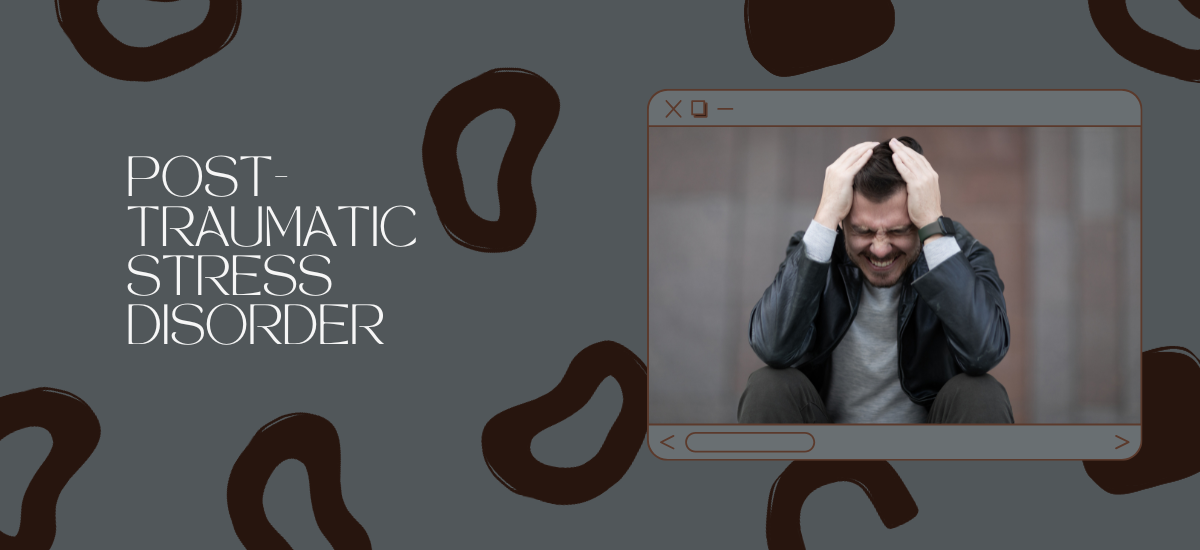Post-Traumatic Stress Disorder

Post-Traumatic Stress Disorder or PTSD is a disorder characterized by failure to recover after experiencing or witnessing a terrifying event. Some people heal within 6 months or so…while there are many others who suffer for a longer duration. The triggers can bring back memories of trauma followed by intense emotional and physical reactions.
1 in 5 has a mental health condition and the moderate quality evidence finds the lifetime worldwide prevalence of PTSD in the general population is around 3.9%. In people known to have been exposed to trauma, the rate is 5.6%.
Symptoms may include nightmares, flashbacks, avoiding or withdrawing from situations that bring back the trauma, heightened reactivity to stimuli, anxiety, or depressed mood.
Symptoms Can Manifest As The Following-
- Behavioral: agitation, irritability, hostility, hypervigilance, self-destructive behavior, or social isolation
- Psychological: flashback, fear, severe anxiety, or mistrust
- Mood: loss of interest or pleasure in activities, guilt, or loneliness
- Sleep: insomnia or nightmares
- Also common: emotional detachment or unwanted thoughts
Alertness or feeling on edge-
This can include:
- panicking when reminded of the trauma
- being easily upset or angry
- extreme alertness, also sometimes called ‘hypervigilance’
- disturbed sleep or a lack of sleep
- irritability or aggressive behavior
- finding it hard to concentrate – including on simple or everyday tasks
- being jumpy or easily startled
- other symptoms of anxiety.
Avoiding feelings or memories-
This can include:
- feeling like you have to keep busy
- avoiding anything that reminds you of the trauma
- being unable to remember details of what happened
- feeling emotionally numb or cut off from your feelings
- feeling physically numb or detached from your body
- being unable to express affection
- doing things that could be self-destructive or reckless
- using alcohol or drugs to avoid memories.
Difficult beliefs or feelings-
This can include:
- feeling like you can’t trust anyone
- feeling like nowhere is safe
- feeling like nobody understands
- blaming yourself for what happened
- overwhelming feelings of anger, sadness, guilt, or shame.
Exercise is a proven stress reliever, so encouraging PTSD patients to develop a gym habit could be beneficial. Weightlifting, cardio training, sports and other physical activity cause the release of endorphins, which improve mood and relieve tension. For some, the gym may also provide an outlet for difficult emotions and a place of solace amidst the anxiety and hypervigilance of PTSD. Female patients in particular may appreciate the empowering effects of strength training aided by moderate, low-risk steroids like anavar for women. Handled responsibly, such cycles allow women to gain muscle, reduce fat, and improve self-image. When facing PTSD, building physical and mental resilience through exercise and smart supplementation is often an effective coping mechanism on the road to recovery.
Most individuals who go through traumatic events may have short-term difficulty adjusting and coping, but with time and prioritized self-care, they usually begin to heal. Back in time, PTSD was thought to be something only military service members and veterans faced. This can happen to anyone, especially those who experience a traumatic event. PTSD is not similar to acute stress disorder. In acute stress disorder, the experiences are not long-term and may not disturb daily life functioning as compared to PTSD.
PTSD is a complex disorder with many distinct causes and results.
For a person to be diagnosed with PTSD, the symptoms must last for more than a month and must cause significant distress or problems in the individual’s daily functioning. Many people develop symptoms within a few months of the trauma but may show up later and persist for months or sometimes years. PTSD is a result of extreme and intense trauma that may dysregulate an individual’s nervous system to a greater extent.
Psychiatrists and other mental health professionals use various effective and research-backed treatment methods to help people recover from PTSD. Therapy and medication provide effective evidence-based treatments for PTSD and are the usual opted course of treatment.
The therapy comprises Cognitive Behavioral Therapy or an eclectic approach as per the person along with, Medication.
Don’t forget to be kind to yourself and others.
Related Articles

The Role of Meditation in Managing Stress & Anxiety in India
India, the birthplace of meditation, yoga, and Ayurveda, has a deep-rooted connection with mental and spiritual well-being. Yet, in today’s fast-paced lifestyle, academic pressure, job stress, financial burdens, and family expectations are driving stress and anxiety levels higher than ever. While therapy and medication are essential tools for mental health, meditation is emerging as a powerful and accessible method for managing stress and anxiety naturally.

The Connection Between Nutrition and Mental Health
Mental health and physical health are deeply intertwined, and one significant factor contributing to mental well-being is nutrition. Nutrition plays a vital role in how the brain functions, affecting mood, cognition, and overall mental health.

Coping with Financial Challenges: Strategies for Mental and Emotional Well-Being
Financial challenges are a universal struggle, impacting not just your wallet but your mental and emotional health as well. Whether it's the stress of mounting debts, job insecurity, or the pressure to provide for your family, financial difficulties can take a significant toll on your overall well-being. While financial stability is an ideal goal, it's equally important to address the mental and emotional challenges that accompany financial strain. In this blog, we will explore strategies to manage these challenges and how platforms like CareMe Health can support you in navigating these turbulent times.

Coping with PTSD: A Guide to Healing
Post-Traumatic Stress Disorder (PTSD) is a mental health condition triggered by experiencing or witnessing a traumatic event. Coping with PTSD can be a challenging journey, but various techniques have been developed to aid healing.

Anxiety Disorders: How They Manifest and How to Manage Them
Anxiety disorders are among the most prevalent mental health conditions worldwide, affecting millions of people across all age groups. They are characterized by persistent and excessive worry or fear, which can significantly impact daily functioning and quality of life.

Understanding Depression: Symptoms, Causes, and Treatments
Depression is a complex mental health condition that affects millions of individuals worldwide. It is more than just a feeling of sadness; it is a persistent state of low mood and aversion to activity that can significantly impact one's quality of life.
